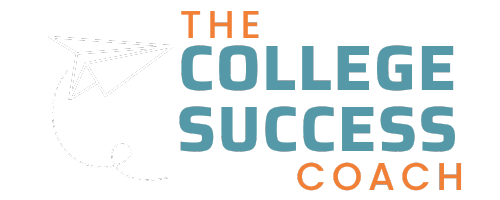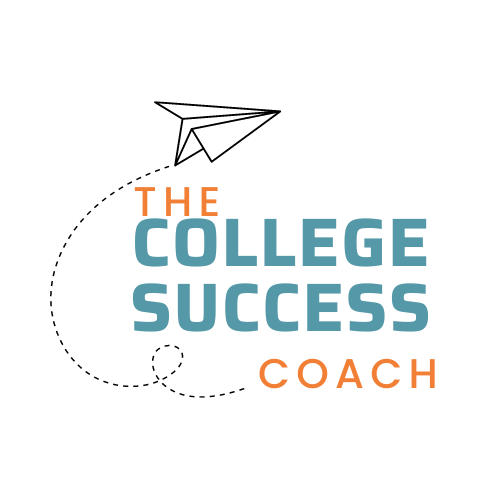College Readiness Programs and Student Success
College readiness programs have become essential tools for helping students bridge the gap between high school and college life. These programs provide students with the skills, resources, and confidence they need to thrive academically, socially, and emotionally in higher education. But how effective are they, and who benefits most from these initiatives? Moreover, how can personalized coaching complement these programs to truly set students up for success?
What Are College Readiness Programs?

College readiness programs aim to prepare high school students for the academic and personal challenges of college. These programs often focus on core areas like:
- Academic preparedness: Strengthening skills in subjects like math, writing, and critical thinking.
- Navigating college applications: Guiding students through essays, deadlines, and submission requirements.
- Financial literacy: Helping students understand budgeting, scholarships, and student loans.
- Preparing for the SAT/ACT: Offering test prep to improve college entrance exam scores.
Organizations like AVID (Advancement Via Individual Determination) and TRIO Programs offer comprehensive college readiness services. These initiatives have a proven track record of improving college enrollment and retention rates, particularly for underrepresented and first-generation students.
Some programs also include workshops and mentorship opportunities, giving students access to role models and guidance as they transition to college. By addressing the logistical and academic hurdles, these programs ensure that students are equipped with a strong foundation for success.
The Effectiveness of College Readiness Programs
Research consistently shows that college readiness programs significantly impact student success. For example:
- Higher College Enrollment: Students who participate in readiness programs are more likely to apply to and enroll in college than their peers.
- Improved Retention Rates: By addressing challenges like academic preparedness and college applications, these programs reduce the likelihood of students dropping out.
- Financial Accessibility: Students in readiness programs are often more aware of scholarships and financial aid opportunities, reducing barriers to college attendance.
A study by the College Board found that students in readiness programs were more likely to persist through their first year of college, a critical indicator of long-term success. These programs also empower students to navigate complex college systems, such as financial aid offices and academic advising, which can otherwise feel daunting.
Who Benefits Most From These Programs?

College readiness programs are especially beneficial for specific groups of students, such as:
- First-Generation Students: These students often face unique challenges as they navigate unfamiliar territory in higher education. Readiness programs help demystify the application process, financial aid, and academic expectations.
- Students Needing Academic Support: For those who feel underprepared in subjects like math or writing, these programs focus heavily on strengthening core academic skills to meet college-level standards.
- Students With Financial Barriers: By teaching financial literacy and connecting students to scholarships, grants, and resources, readiness programs make college more attainable.
- Students Seeking Structured Guidance: Even high-achieving students can feel overwhelmed by the sheer number of tasks involved in preparing for college. Programs that offer step-by-step instructions on applications and decision-making can provide a much-needed roadmap.
While these programs excel at academic and logistical preparation, they don’t always address the personal growth and life skills students need to truly thrive in college. The gap in teaching soft skills, like adaptability and emotional resilience, often leaves students struggling once they are on campus.
The Gaps in Traditional Readiness Programs
While college readiness programs are incredibly effective, they’re not without limitations. Many programs adopt a one-size-fits-all approach, which can leave gaps in addressing the unique needs of individual students. For example:
- Narrow Academic Focus: These programs often emphasize improving grades and test scores but don’t always prioritize the personal and social growth needed for a well-rounded college experience.
- Short-Term Perspective: Most readiness programs end once students start college, leaving them without support during the crucial first semester and beyond.
- Limited Life Skills Training: Skills like time management, independence, and career exploration are often underemphasized.
Additionally, traditional programs may not account for the diverse challenges that students face in modern college environments. Issues such as digital distractions, mental health struggles, and the need for work-life balance often require more tailored, hands-on support.
How The College Success Coaching Program Enhances These Services

This is where personalized coaching from The College Success Coach comes in. While College Readiness Programs focus on preparing students for the logistical and academic challenges of college, our coaching program takes a broader, more holistic approach by emphasizing:
- Personal Growth and Independence: We help students build life skills like managing their time effectively, navigating relationships, and maintaining a healthy balance between academics and personal interests. For example, we teach students how to set priorities, avoid procrastination, and establish routines that support both productivity and well-being.
- Social and Emotional Skills: College can be overwhelming, especially when it comes to making friends, joining organizations, or dealing with homesickness. Our coaching provides strategies to build confidence and connections, ensuring students feel supported both emotionally and socially.
- Career Exploration: Instead of waiting until junior or senior year, we encourage students to start thinking about their career paths early, helping them align their academic choices with long-term goals. This includes guidance on internships, networking, and exploring passions that might lead to fulfilling careers.
- Ongoing Support: Unlike traditional College Readiness Programs, our coaching doesn’t stop at college enrollment. We provide continuous guidance throughout the semester, helping students navigate the challenges of their new environment. This ensures they have someone to turn to when unexpected obstacles arise.
- Parental Involvement: Parents play a vital role in their student’s success. Our program includes resources for parents to support their student effectively without overstepping. By creating a partnership between students, parents, and coaches, we ensure a well-rounded approach to success.
When Should Students Seek Coaching?
Coaching is beneficial for:
-
Overachievers: Students who excel academically but struggle with burnout or perfectionism. Our coaching helps them find balance and maintain their mental health. While College Readiness Programs often address academic preparation, coaching provides the additional support needed to manage stress and maintain well-being.
-
Underprepared Students: Those who feel overwhelmed by the academic and social demands of college. Coaching helps them develop the skills and confidence they need to succeed. Unlike traditional College Readiness Programs, coaching offers personalized strategies to address individual challenges and build resilience.
-
Students in Transition: Whether moving to a new city, adjusting to dorm life, or balancing part-time jobs, coaching helps students manage these changes and thrive in their new environment. By complementing the foundational support of College Readiness Programs, coaching ensures students are equipped to handle the complexities of college life.
Recommended Resources for College Readiness Services

For those interested in exploring traditional readiness programs, here are some excellent resources:
- AVID: Focuses on closing the achievement gap by preparing all students for college readiness and success.
- TRIO Programs: Federally funded programs designed to support students from disadvantaged backgrounds.
- Khan Academy: Offers free courses on SAT prep, math, writing, and more.
- College Board’s BigFuture: Provides tools for college planning, financial aid, and scholarships.
A Better Path to Success
While traditional college readiness programs lay a solid groundwork, personalized coaching takes student success to the next level. By addressing individual challenges and providing ongoing support, The College Success Coaching Program ensures that students not only navigate college life but excel in it. Our emphasis on personal growth, emotional resilience, and holistic success makes us the ideal partner for students and parents looking for more than just academic preparation.
Whether your student is gearing up for their first semester or struggling to find their footing, we’re here to help every step of the way.
Ready to learn more? Explore our coaching options today and give your student the tools they need to succeed—not just in college, but in life.






0 Comments
Trackbacks/Pingbacks